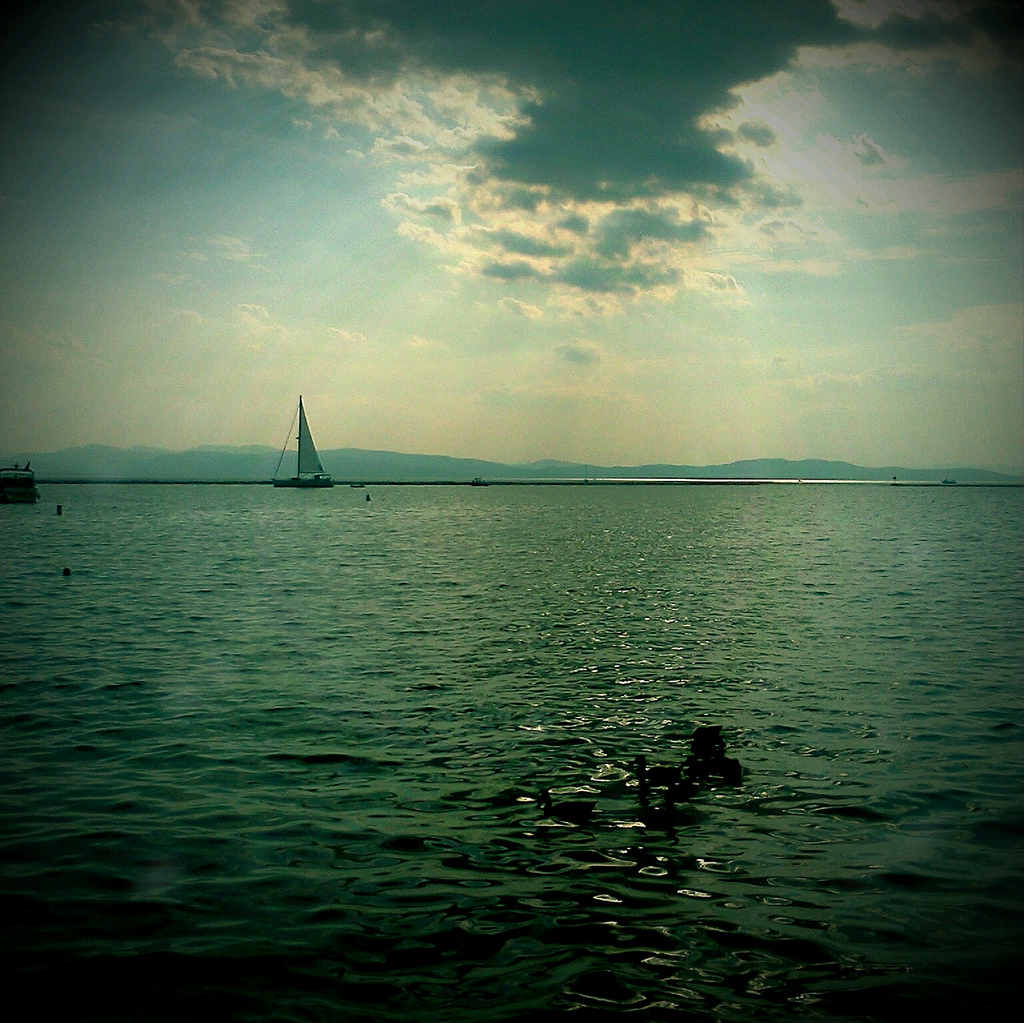Search
Close

Seeing myself seeing the lake: objects or occurrences?
 To make that more tangible: when I look outside my window at home, I can see a lake (Champlain), mountains (the Adirondacks), darkening blue sky with an airplane crossing it, a few boats on the water, some trees, a family of bicyclists riding along the bike path down below, and so on.
To make that more tangible: when I look outside my window at home, I can see a lake (Champlain), mountains (the Adirondacks), darkening blue sky with an airplane crossing it, a few boats on the water, some trees, a family of bicyclists riding along the bike path down below, and so on.
Or, alternatively, I can look out the window and see myself looking and seeing the lake (etc.), hearing voices, etc. — and others looking and seeing me, responding to my voice (which just said “What is that thing down there on the lake?”), or responding to other things (the communicative chirpings of insects, and so on). I see seeings, hearings, sensings, perceivings, chirpings, resonations, etc. Some of these are “mine” and others may not be, and because they’re not “mine” I’m less sure of exactly what they are. But I have no reason to believe that they are not similar in nature to my sensings and perceivings and feelings. In other words, I see my seeing (hearing, feeling, etc.) things, and I see a world that sees and feels me, and that is itself made up of seeings and feelings.
These seeings, hearings, feelings, sensings, and so on — these prehensions — are the real things populating a process-relational world. They are its basic bits. Once this is accepted — and I agree that it does take a twist of mind to start thinking in these terms — we can start asking the more interesting kinds of questions: like, given that the basic stuff of reality is prehensive in nature (“takings-account of things”), how is it that some such prehensions manage to coordinate fairly large and complex processes (like a whole human bodymind communicating images and ideas to another such bodymind, or to a whole suite of others located around the planet)? How did these complex kinds of relational capacities arise? What are our possibilities for entering into and affecting other kinds of processes? Which processual moments are more open to collective engagement (e.g., to revolutionary transformations) than others?
I’ve been reading some older posts on Adrian J. Ivakhiv’s blog; he’s pretty great. The above passages come from this post in which Adrian addresses some differences he sees between process-relational ontologies and object oriented ontologies.
…
Photo credit: Matthew Robinson, Jr.
0 Comments